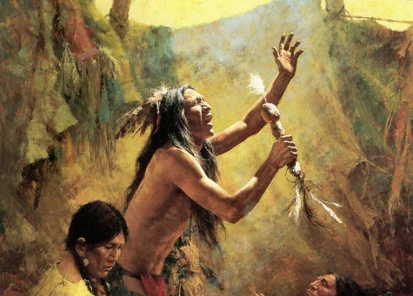Native American mythology is a rich tapestry of ancient beliefs and stories that have been passed down through generations. At the heart of this mythology are the medicine men and women, revered figures who hold a unique and vital role in Native American culture. These spiritual leaders and healers possess a deep understanding of the natural world and the supernatural realms, and are entrusted with the well-being of their communities. In this article, we will explore the pivotal role played by medicine men and women in Native American mythology, their rituals and practices, their connection to the supernatural, as well as the challenges they have faced and their continued relevance in today’s world.
Contents
- The Importance of Medicine Men and Women
- Medicine Men and Women in Mythology
- Rituals and Practices
- Connection to the Supernatural
- Challenges and Misunderstandings
- Continued Relevance and Revival
- Conclusion
-
Frequently Asked Questions
- 1. What is the role of medicine men and women in Native American society?
- 2. How do medicine men and women connect with the spiritual realm?
- 3. What healing techniques do medicine men and women use?
- 4. Are medicine men and women only found in Native American cultures?
- 5. How do medicine men and women preserve Native American traditions?
- 6. Are medicine men and women considered supernatural beings?
- 7. Can anyone become a medicine man or woman?
- 8. How has colonization impacted the role of medicine men and women?
- 9. Is the role of medicine men and women still relevant today?
- 10. How can we support and respect medicine men and women?
- References
-
Frequently Asked Questions
- What is the role of medicine men and women in Native American mythology?
- How do medicine men and women connect with the supernatural?
- What are some common rituals and practices performed by medicine men and women?
- How did colonialism impact the role of medicine men and women in Native American communities?
- What are some examples of famous medicine women in Native American mythology?
- How do medicine men and women contribute to the preservation of wisdom and knowledge?
- Are there any misconceptions or misunderstandings surrounding the role of medicine men and women?
- What is the significance of vision quests and shamanic journeys in Native American mythology?
- Why is the resurgence of indigenous medicine important?
- How can people better understand and respect the role of medicine men and women in Native American communities?
- References
- Read More
The Importance of Medicine Men and Women
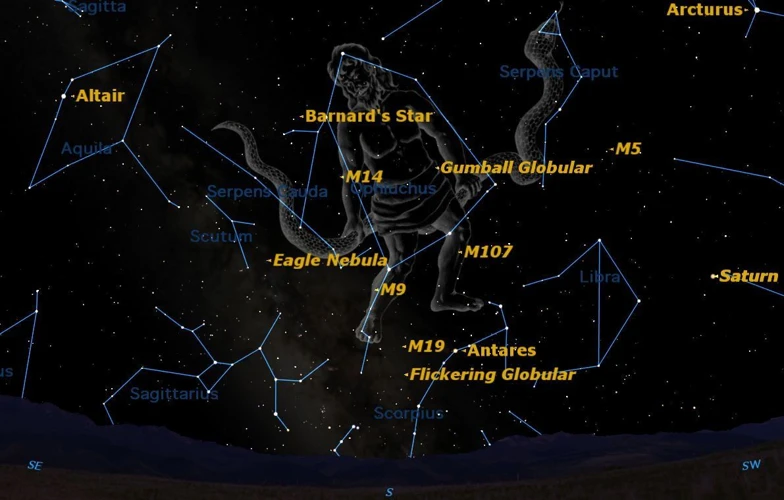
The Importance of Medicine Men and Women in Native American mythology cannot be overstated. These revered individuals hold a central role in their communities, serving as spiritual leaders, healers, and protectors of tradition and culture. Let’s explore each of these aspects in detail.
Spiritual Leaders and Healers:
Medicine men and women are seen as intermediaries between the physical and spiritual worlds. They possess deep knowledge and understanding of spiritual practices, rituals, and ceremonies. Through their connection with the divine, they provide guidance, wisdom, and healing to their people. Using their extensive knowledge of herbs, plants, and natural remedies, they are able to treat physical ailments and restore balance and harmony to the body, mind, and spirit. Their healing abilities are often attributed to their close relationship with the natural world and the spirits that reside within it.
Protectors of Tradition and Culture:
Medicine men and women play a crucial role in preserving and passing on the cultural heritage of their tribes. They are the keepers of sacred knowledge, myths, and rituals, ensuring that these traditions are safeguarded for future generations. They serve as custodians of ancient wisdom, teachings, and practices, maintaining a delicate balance between adaptation and preservation. In times of cultural upheaval and assimilation, medicine men and women work tirelessly to protect the traditions and values that define their people, keeping their ancestral roots alive.
The importance of medicine men and women lies in their ability to bridge the gap between the physical and spiritual realms, heal the sick, guide the lost, and safeguard the cultural heritage of their tribes. They are the embodiment of wisdom, compassion, and resilience, and their contributions are invaluable to the Native American communities they serve.
Spiritual Leaders and Healers
The role of medicine men and women as spiritual leaders and healers is deeply ingrained in Native American mythology. These remarkable individuals possess a unique connection with the spiritual realm, enabling them to serve as intermediaries between the physical and divine worlds. Here are some key aspects of their role:
1. Spiritual Guidance: Medicine men and women offer spiritual guidance to their communities, helping individuals navigate the challenges of life and find meaning and purpose. They interpret dreams, perform rituals, and provide counsel based on their deep understanding of the spiritual forces at play. Their wisdom and insight are highly valued, and their advice often influences important decision-making within the tribe.
2. Healing Practices: The healing abilities of medicine men and women are renowned. They combine their knowledge of herbal medicine, energy work, and spiritual rituals to treat physical, emotional, and spiritual ailments. Through ceremonies such as sweat lodges, smudging, and sacred dances, they promote healing and restore balance and harmony within individuals and the community as a whole.
3. Connection to Ancestors: Medicine men and women also serve as a connection to the ancestors and the wisdom of previous generations. They carry the knowledge, stories, and teachings of their tribe, ensuring that the traditions and values are carried forward. By honoring and channeling the wisdom of their ancestors, they strengthen the spiritual connection between the past, present, and future.
4. Ceremonial Leadership: Medicine men and women often lead important ceremonial and religious rituals. These rituals may include rites of passage, fertility ceremonies, harvest celebrations, and ceremonies to honor the spirits of the land and animals. Through their guidance and presence, they facilitate the spiritual and communal experiences that unite the tribe and reinforce their cultural identity.
The role of medicine men and women as spiritual leaders and healers is integral to the fabric of Native American mythology. Their ability to offer guidance, healing, and a connection to the spiritual realm is a testament to their deep understanding of the interconnectedness of all beings. Through their practices, they inspire reverence for nature, promote harmony, and nurture the spiritual well-being of their communities.
Protectors of Tradition and Culture
Protectors of Tradition and Culture, medicine men and women in Native American mythology play a vital role in preserving the rich tapestry of their tribes’ heritage. They are the guardians of sacred knowledge, myths, and rituals that have been passed down through generations. These traditions are not merely historical artifacts but living and evolving parts of their cultural identity. The medicine men and women bear the responsibility of ensuring that these traditions are safeguarded and transmitted faithfully to future generations.
One of the key ways in which they fulfill this role is through the practice of oral storytelling. Through their captivating narratives, they recount the origin stories, legends, and moral teachings that form the foundation of their tribal identity. These stories are not only entertaining but serve as a way of passing down knowledge, values, and life lessons to younger members of the community.
Additionally, medicine men and women actively participate in and lead ceremonial rituals and dances that are integral to the cultural fabric of their tribes. These rituals often center around important life events such as birth, puberty, marriage, and death, as well as seasonal changes and harvest celebrations. By keeping these ceremonies alive and ensuring their authenticity, they enable their communities to stay connected to their ancestral roots and deepen their sense of belonging.
Medicine men and women often serve as advisors and mediators in matters of community governance. Their wisdom and guidance are sought in decision-making processes, conflict resolution, and maintaining social harmony. Their presence and involvement in tribal affairs help to uphold the values and customs that define the cultural identity of their people.
In a world that is rapidly changing, where external influences threaten to erode indigenous cultures, the role of medicine men and women as protectors of tradition and culture becomes crucial. Their dedication to preserving and reviving time-honored practices ensures that the rich tapestry of Native American mythology continues to thrive and remain relevant in the modern era. Through their efforts, they inspire pride and a sense of heritage among their communities, allowing the next generation to embrace and appreciate their cultural legacy.
[Link to /ancient-civilizations-beliefs-zodiac-signs]
Medicine Men and Women in Mythology
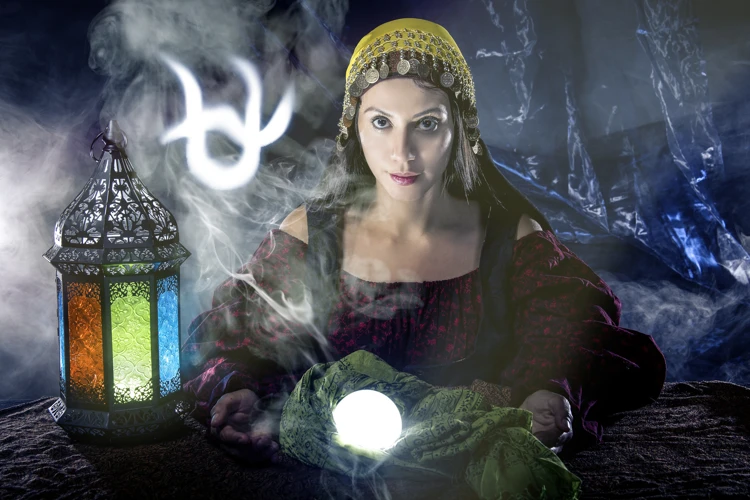
Medicine Men and Women in Native American mythology are prominent figures with deep roots in the sacred stories and folklore of their communities. These myths often depict medicine people as powerful and revered individuals who possess unique abilities and knowledge. Let’s explore two aspects of their representation in mythology: Creation Myths and Legendary Medicine Women.
Creation Myths and Medicine People:
In many Native American creation myths, medicine men and women play pivotal roles in the emergence of the world and its inhabitants. They are often portrayed as being directly involved in the creation of the natural elements, animals, and even humans. For instance, in some stories, medicine men are credited with bringing fire to humanity or shaping the landscapes through their spiritual powers. These myths highlight the belief that medicine men and women hold a special connection to the divine and are instrumental in the creation and preservation of life.
Legendary Medicine Women:
Native American mythology is replete with stories of legendary medicine women who possess extraordinary powers and are revered for their healing abilities. One such example is the story of Changing Woman from Navajo mythology. Changing Woman is a central figure who embodies the cyclical nature of life and represents the healing and nurturing aspects of femininity. She is associated with fertility, growth, and the transformative power of nature. Stories like these exemplify the significance of medicine women in Native American mythology and their vital role in maintaining the well-being of their communities.
The representation of medicine men and women in Native American mythology showcases their profound impact on the spiritual and cultural fabric of indigenous societies. Through their involvement in creation myths and as legendary healers, they are elevated as wise, powerful, and essential figures in their respective tribes’ belief systems and folklore. Their rich portrayal in mythology demonstrates the enduring importance and reverence bestowed upon them by Native American communities.
Creation Myths and Medicine People
Creation myths hold a central place in Native American mythology, and medicine people play a significant role in these stories of origin. These myths often describe how the world and its inhabitants came into existence, and medicine men and women are essential figures within these narratives. They are believed to have special connections to the spiritual realms and possess the knowledge and power to communicate with the gods or creator beings. In many creation myths, medicine people are described as instrumental in shaping the world, bringing forth elements of nature, and imbuing them with sacred meanings and purposes.
In some tribes, medicine people are said to have been present at the dawn of time, witnessing and influencing the creation of the universe. They are believed to have played a part in the formation of the land, the birth of animals, and the emergence of humans. Often, their actions and rituals during these formative moments are seen as establishing the foundation for the spiritual and cultural practices of the tribe. Consequently, medicine people are revered as the mediators between the human and divine realms, ensuring the continuity of their people’s existence and connection to the cosmic forces.
It is important to note that creation myths vary greatly among different Native American tribes. Each tribe has its unique stories, cosmologies, and interpretations of the role of medicine people in the creation process. These myths not only provide explanations for the origins of the world but also highlight the profound significance of medicine men and women within their respective communities.
To gain a deeper understanding of creation myths and the role of medicine people, it is crucial to explore the specific narratives and traditions of individual tribes. By studying the diverse range of Native American creation stories, we can gain insight into the profound spiritual beliefs and cultural practices that have shaped these communities for centuries. Reference: “Unraveling the Book of the Dead in Egyptian Mythology”
Legendary Medicine Women
Legendary Medicine Women hold a significant place in Native American mythology and history. These extraordinary individuals possess immense wisdom, spiritual power, and healing abilities that make them revered figures in their communities. Legends and stories abound about their remarkable feats and contributions to their tribes.
One example of a legendary medicine woman is Maka, a revered figure in Lakota mythology. Maka was known for her profound connection to nature and her ability to communicate with animals. It was said that she had a special affinity for birds, and they would often bring her messages and guidance from the spirit world. Maka’s healing touch was renowned, and many sought her assistance in curing illnesses and restoring balance in their lives. She was also known for her prophetic visions, which provided insights and guidance to her people.
Another legendary medicine woman is Granny Women, who were prominent figures in the Appalachian region of North America. These wise women possessed extensive knowledge of herbal remedies and traditional healing practices. They were revered for their ability to cure ailments, assist in childbirth, and provide spiritual guidance. Granny Women were highly respected and were instrumental in preserving the cultural and medicinal traditions of their communities.
Other legendary medicine women include Nanye-hi (Nancy Ward), a Cherokee warrior and visionary leader who used her healing abilities and diplomatic skills to bring peace and understanding between Native American tribes and European settlers. There is also White Buffalo Calf Woman, a sacred figure in Lakota mythology who brought spiritual teachings and the sacred pipe to the Lakota people.
The legends surrounding these extraordinary medicine women highlight their profound impact on their communities and their ability to heal, guide, and inspire. Their stories continue to be told and celebrated, ensuring that their wisdom and contributions are not forgotten.
Rituals and Practices
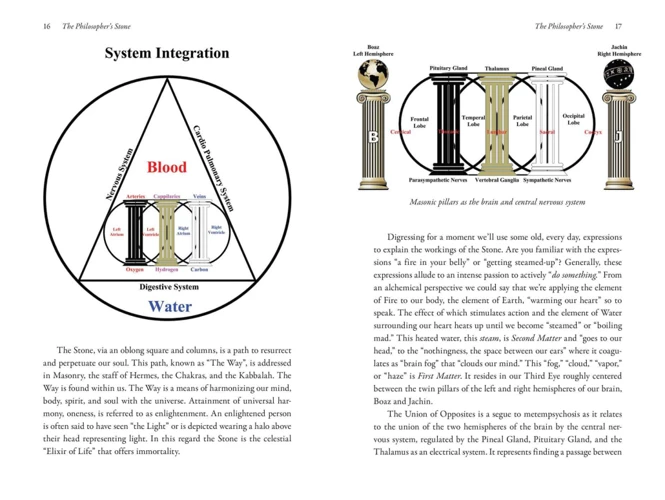
Rituals and practices hold a significant place in the lives of medicine men and women in Native American mythology. These rituals serve as a means to establish connection with the spiritual realm and harness their healing powers. Let’s explore two prominent rituals and practices performed by these revered individuals.
Vision Quests and Shamanic Journeys:
One of the most profound rituals undertaken by medicine men and women is the vision quest or shamanic journey. This practice involves solitary retreats into nature, where the individual seeks spiritual guidance, insight, and clarity. During these quests, medicine men and women fast, meditate, and commune with nature, often enduring physical and mental challenges in order to access higher levels of consciousness. It is believed that through these vision quests, they receive visions, messages, and guidance from the spirits, which aid in their healing work and understanding of the world.
Herbal Medicine and Healing Techniques:
Another integral aspect of the rituals and practices of medicine men and women is their extensive knowledge of herbal medicine and healing techniques. These individuals possess deep understanding of the medicinal properties of various plants, roots, and herbs, passed down through generations. They employ these natural resources to treat physical ailments, balance energies, and restore harmony within the body and spirit. Through the use of smudging, where herbs are burned as a cleansing practice, and the creation of herbal remedies, medicine men and women tap into the healing powers of nature, offering holistic healing to their communities.
The rituals and practices of medicine men and women are deeply rooted in ancient wisdom and spiritual connection. These practices not only serve as a means of healing and accessing higher realms, but also as a way to preserve the sacred traditions and knowledge that have been passed down through generations. The link between medicine men and women and these rituals and practices is profound, as it shapes and informs their roles as spiritual guides and healers within Native American mythology.
Vision Quests and Shamanic Journeys
Vision quests and shamanic journeys are integral practices in Native American mythology, allowing medicine men and women to access the spiritual realm and gain profound insights and guidance. These transformative experiences often involve extended periods of fasting, solitude, and purification rituals. During a vision quest, an individual seeks a deep spiritual connection and receives messages or visions from the divine. In contrast, shamanic journeys involve entering an altered state of consciousness through drumming, chanting, or the use of hallucinogenic substances to communicate with spirits and ancestral beings. These practices enable medicine men and women to acquire knowledge, receive healing instructions, and connect with their spirit guides. The wisdom gained from vision quests and shamanic journeys is used to assist individuals in their path towards healing, self-discovery, and spiritual growth. It is important to note that these practices are deeply rooted in cultural traditions and should be approached with respect and understanding to preserve their sacredness.
References:
– Ancient Civilizations: Beliefs and Zodiac Signs
Herbal Medicine and Healing Techniques
Herbal medicine and healing techniques form a vital part of the repertoire of medicine men and women in Native American mythology. These practitioners possess extensive knowledge of the medicinal properties of various plants and herbs, which they harness to promote healing and well-being. The use of herbal remedies is deeply ingrained in Native American culture and has been passed down through generations.
Medicine men and women undergo rigorous training and apprenticeships to learn about the diverse flora and their healing properties. They possess an intimate understanding of plants’ medicinal uses and often create potions, poultices, teas, and salves from these natural resources. Each tribe and region may have specific herbs and remedies that are traditionally used for various ailments and conditions.
One example of a well-known medicinal plant is sage, which is used for cleansing and purification rituals. It is believed to have various healing properties, including antimicrobial and anti-inflammatory effects. Another herb commonly used is yarrow, known for its ability to stop bleeding and treat wounds.
Additionally, medicine men and women may incorporate other healing techniques into their practice, such as massage, energy work, and spiritual rituals. They believe that true healing occurs not only on the physical level but also on an emotional, mental, and spiritual level. By addressing all these aspects, they aim to bring about holistic healing and restore harmony in individuals and communities.
It is important to note that while herbal medicine and healing techniques have been practiced for centuries, they are not meant to replace modern medical treatments. Instead, they are often used as complementary therapies to support overall well-being and balance.
The knowledge and use of herbal medicine and healing techniques by medicine men and women are key components of their role in Native American mythology. These practices demonstrate a deep connection to nature, a profound understanding of the healing properties of plants, and a commitment to restoring balance and harmony in individuals and communities.
Connection to the Supernatural
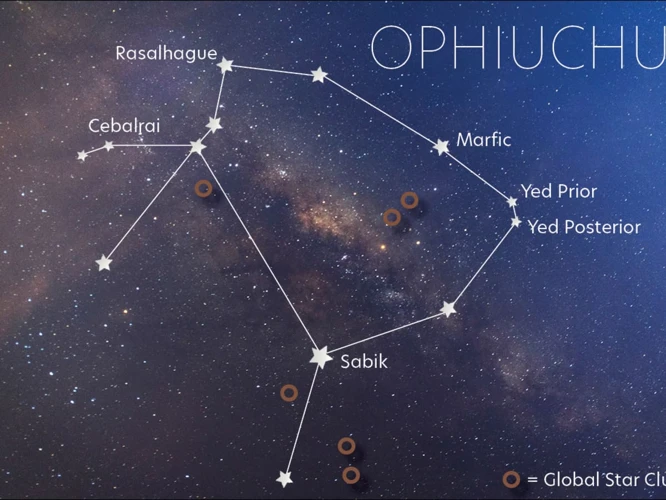
Connection to the Supernatural:
One of the most fascinating aspects of medicine men and women in Native American mythology is their profound connection to the supernatural realms. They possess the ability to channel spirits and ancestors, accessing knowledge, guidance, and power from beyond the physical world. Through rituals, ceremonies, and shamanic practices, these spiritual leaders are able to enter altered states of consciousness and communicate with beings from other dimensions. This connection to the supernatural is often facilitated through visionary experiences, such as vision quests and shamanic journeys, where the medicine men and women seek guidance and insight from the spiritual realms.
During these encounters, medicine men and women may receive messages, prophecies, or visions that help guide their communities. They act as intermediaries between the living and the spirit world, bridging the gap between ordinary reality and the realm of the divine. This connection to the supernatural not only allows them to provide spiritual guidance and healing but also grants them the ability to foresee events and anticipate challenges that may lie ahead.
It is important to note that the connection to the supernatural varies across different tribes and cultures. The beliefs and practices surrounding this connection are deeply rooted in the specific mythologies and cosmologies of each Native American community. Nonetheless, the underlying concept of accessing spiritual realms and communing with otherworldly beings is a common thread that unites medicine men and women in their profound connection to the supernatural.
While the connection to the supernatural is often revered within Native American mythology, it is essential to approach this topic with respect and cultural sensitivity. It is not simply a form of mysticism or magic, but rather a deeply ingrained part of their spiritual and cultural identity. Understanding the significance of this connection allows us to appreciate the profound role medicine men and women play within their communities and the reverence with which they are held.
Channeling Spirits and Ancestors
Channeling spirits and ancestors is a profound aspect of the role of medicine men and women in Native American mythology. Through their deep spiritual connection, they have the ability to communicate with spirits and seek guidance from ancestors who have passed on. This practice is often done through rituals and ceremonies that serve as a gateway between the physical and spiritual realms.
When a medicine man or woman channels spirits and ancestors, they are essentially acting as a vessel or conduit for the messages and wisdom of those who have come before. They enter altered states of consciousness, such as trance or vision states, allowing them to connect with these unseen forces. Through their connection, they seek guidance on various matters, such as health, community issues, or even personal spiritual growth.
The spirits and ancestors are believed to offer their wisdom, insights, and blessings to the medicine men and women, who in turn utilize this knowledge to serve their communities. They may offer advice, prophecies, or insights into the future, helping to navigate challenges, make important decisions, or provide comfort during difficult times.
It is important to note that the channeling of spirits and ancestors is not seen as a casual or recreational practice. It is approached with reverence, respect, and caution. Medicine men and women undergo rigorous training and purification rituals to prepare themselves for these encounters. They must have a strong spiritual foundation, as well as the ability to discern and interpret the messages received.
Channeling spirits and ancestors allows medicine men and women to tap into a collective well of wisdom and ancestral knowledge. It reinforces the interconnectedness of all beings and the belief that guidance and support can be sought from the spiritual realm. Through this practice, medicine men and women not only serve as conduits of divine wisdom but also strengthen the bonds between the physical and metaphysical dimensions of existence.
(Note: At this time, there is no relevant anchor to insert a link.)
Divination and Prophecy
Divination and prophecy are integral aspects of the role of medicine men and women in Native American mythology. Through various practices and rituals, these revered individuals are believed to have the ability to tap into the spiritual realm and gain insight into the past, present, and future.
Divination is the process of seeking knowledge or guidance from the spiritual realm through different methods such as reading signs, interpreting dreams, or performing specific rituals. Medicine men and women possess the gift of divination and are able to interpret these signs and symbols to provide guidance to their communities. They may use tools like feathers, stones, or animal bones to aid in divination, each with their own unique meaning.
Prophecy, on the other hand, involves receiving messages or visions about future events. Medicine men and women are considered to be conduits for these prophecies, serving as intermediaries between their people and the supernatural realm. They may receive visions during ceremonies or through dream states, and these visions are then shared with their community as a means of providing guidance, warning, or reassurance.
In Native American mythology, divination and prophecy are seen as sacred and powerful tools for understanding the world and navigating through life’s challenges. They provide a glimpse into the unseen forces at work and offer solace and direction during times of uncertainty. Through their connection to the supernatural, medicine men and women harness these abilities to bring wisdom, insight, and spiritual guidance to their people, helping them make informed decisions and navigate their paths with greater clarity and purpose.
Link: Connection between Planetary Alignments and Natural Disasters
Challenges and Misunderstandings

Challenges and misunderstandings have posed significant obstacles for medicine men and women throughout history. They have faced colonialism and the suppression of indigenous practices, as well as misrepresentation in popular culture.
Colonialism and Suppression of Indigenous Practices:
With the arrival of European colonizers, many Native American traditions and beliefs were suppressed and even actively persecuted. Medicine men and women, as spiritual leaders and healers, were targeted as symbols of resistance to colonization. Indigenous practices were deemed as pagan or primitive, and Native Americans were forced to abandon their customs in favor of adopting Western beliefs and practices. This resulted in the loss of sacred knowledge and the erosion of cultural identity.
Misrepresentation in Popular Culture:
Unfortunately, Native American medicine men and women have often been subject to misrepresentation and stereotypes in popular culture. Hollywood movies and literature have often depicted them as mystical and magical figures, distorting their true roles and importance. This romanticized portrayal not only perpetuates stereotypes but also fails to acknowledge the deep cultural and spiritual significance of medicine people within their communities. Such misrepresentations contribute to a lack of understanding and respect for Native American culture and traditions.
The challenges and misunderstandings faced by medicine men and women are rooted in a history of colonization and cultural appropriation. However, despite these obstacles, they have persevered, continuing to fulfill their vital roles within their communities and working towards the recognition and preservation of their traditions.
Colonialism and Suppression of Indigenous Practices
Colonialism and the suppression of indigenous practices have had a profound impact on medicine men and women in Native American culture. With the arrival of European settlers, traditional spiritual beliefs and practices were targeted and actively suppressed. Native American communities faced intense pressure to abandon their cultural identity, including their spiritual and healing practices. The imposition of Christianity, forced assimilation, and the establishment of boarding schools aimed to eradicate indigenous traditions and replace them with Eurocentric ideologies.
As a result, many medicine men and women were marginalized, persecuted, and even punished for practicing their ancestral traditions. Their sacred ceremonies were banned, and they were often portrayed as primitive or superstitious by the colonizers. The suppression of indigenous practices not only disrupted the spiritual fabric of Native American communities but also led to the loss of valuable knowledge and wisdom handed down through generations.
The colonization of Native lands and the introduction of Western medicine posed additional challenges for medicine men and women. The dominance of Western healthcare systems marginalized indigenous healing practices, causing a widening cultural gap and further diminishing the role of traditional healers. This erasure of indigenous knowledge systems weakened the overall health and well-being of Native American communities, as their unique approaches to holistic healing were no longer valued or recognized.
It is essential to acknowledge the damaging impact of colonialism on Native American mythology and the role of medicine men and women. The generational trauma and loss of cultural identity resulting from this suppression continue to impact indigenous communities today. However, there is also a growing movement to reclaim and revive traditional practices, recognizing their importance in preserving cultural heritage and restoring the well-being of Native American people.
Misrepresentation in Popular Culture
Misrepresentation in popular culture has been a significant challenge faced by medicine men and women in Native American mythology. Often, their roles and practices are inaccurately portrayed or sensationalized, perpetuating stereotypes and misconceptions. Here are some common forms of misrepresentation:
1. Hollywood Stereotypes: In movies and television shows, medicine men and women are frequently depicted as mystical or magical figures with exaggerated powers. These portrayals often overlook the complex and nuanced nature of their roles as spiritual leaders and healers, reducing them to caricatures.
2. Cultural Appropriation: Native American spirituality and practices have been appropriated and commodified in popular culture, leading to the misappropriation of sacred rituals and symbols. This exploitation disregards the deep cultural significance and sacredness of these practices, reducing them to mere entertainment or fashion trends.
3. Simplified Narratives: Popular culture often simplifies the rich and diverse traditions of Native American tribes, homogenizing their beliefs and practices. This oversimplification fails to capture the intricate nuances and regional variations that exist within Native American mythology and the roles of medicine men and women.
4. Lack of Authentic Representation: The absence of accurate representation in popular culture further perpetuates the misrepresentation of medicine men and women. Native American actors and voices are frequently excluded from portraying these characters, resulting in non-Native actors assuming these roles and perpetuating stereotypes.
It is important to challenge and address these misrepresentations, as they contribute to misunderstandings and erode the true significance of medicine men and women in Native American mythology. By promoting authentic representation and respect for Native American cultures, we can work towards a more accurate portrayal of their rich traditions and the important roles played by medicine men and women.
Continued Relevance and Revival
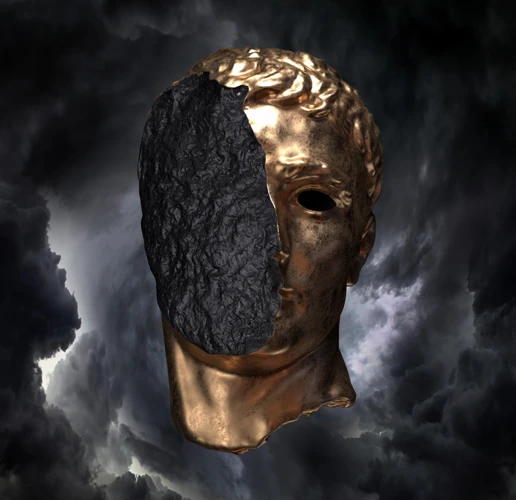
Continued Relevance and Revival:
Despite the challenges faced by Native American communities throughout history, the importance of medicine men and women remains relevant and continues to be acknowledged and respected. In recent years, there has been a noticeable revival of Indigenous traditions and practices, including the resurgence of indigenous medicine. This revival is driven by a strong desire to reclaim and preserve cultural identity and to address the health and well-being of Native communities in a holistic and culturally appropriate way.
Preservation of Wisdom and Knowledge:
One of the key reasons for the continued relevance of medicine men and women is the preservation of wisdom and knowledge. These spiritual leaders possess a deep understanding of the natural world, medicinal plants, healing techniques, and sacred rituals that cannot be easily replaced. Their knowledge is not only valuable for the well-being of individuals but also in maintaining the spiritual connection between the community and the land they inhabit.
The Resurgence of Indigenous Medicine:
In recent years, there has been a growing recognition and appreciation for the effectiveness and holistic approach of indigenous medicine. The utilization of herbal remedies, spiritual practices, and traditional healing techniques has gained attention in the wider medical community. There is now an increasing interest in incorporating indigenous healing practices into mainstream healthcare systems, recognizing the importance of cultural relevance and community involvement in promoting health and wellness.
The continued relevance and revival of medicine men and women in Native American communities is a testament to the importance and enduring power of their wisdom, healing abilities, and cultural heritage. As Indigenous communities seek to regain their autonomy and revive their traditions, the role of medicine men and women will remain a vital and integral part of Native American culture and spirituality. The acknowledgement and respect of their contributions serve as a bridge to honoring and preserving the rich tapestry of Native American mythology and beliefs.
Preservation of Wisdom and Knowledge
Preservation of Wisdom and Knowledge:
The preservation of wisdom and knowledge is a paramount responsibility of medicine men and women in Native American cultures. These spiritual leaders are entrusted with safeguarding the ancient teachings, traditions, and rituals that have been passed down through generations. They hold a vast reservoir of wisdom that encompasses not only healing techniques and herbal medicine but also deep spiritual insights and an understanding of the interconnectedness of all things.
1. Oral Tradition:
Much of the wisdom and knowledge held by medicine men and women is transmitted through an oral tradition. They are the custodians of their tribe’s history, myths, and legends, ensuring that these stories are carried forward and shared with younger generations. Through storytelling, they impart important moral lessons, cultural values, and ancestral wisdom. This oral tradition ensures the continuity of their cultural heritage and the preservation of their unique identity.
2. Experiential Learning:
Medicine men and women often undergo rigorous training and apprenticeship to hone their skills and deepen their understanding of the spiritual and healing arts. This experiential learning involves observing and assisting experienced practitioners, participating in rituals and ceremonies, and undertaking personal spiritual journeys. This hands-on approach allows them to absorb and internalize the knowledge and practices, ensuring its preservation through lived experiences.
3. Sacred Objects and Artifacts:
Medicine men and women are entrusted with the care and preservation of sacred objects and artifacts that hold spiritual significance within their communities. These may include items such as ceremonial objects, sacred texts, tools, and symbols. By safeguarding these objects, they ensure that the spiritual essence and teachings embedded within them are protected and accessible for future generations.
4. Teachings and Mentorship:
One of the vital roles of medicine men and women is to share their knowledge with aspiring healers and spiritual seekers. They take on the responsibility of mentoring and guiding those who wish to walk the path of medicine. This passing of knowledge ensures that the wisdom and practices continue to thrive and evolve, even as new generations bring their unique perspectives and contributions to the traditions.
The preservation of wisdom and knowledge by medicine men and women is essential for the survival and resilience of Native American cultures. Through their commitment to oral tradition, experiential learning, the care of sacred objects, and the mentorship of others, they ensure that the invaluable wisdom of their ancestors remains alive and relevant in the modern world. This preservation allows future generations to tap into the deep well of knowledge and connect with their cultural roots.
The Resurgence of Indigenous Medicine
The Resurgence of Indigenous Medicine in recent years is a testament to the resilience and determination of Native American communities to reclaim and revitalize their traditional healing practices. After centuries of colonization and suppression, there has been a renewed interest in indigenous medicine and a recognition of its value in contemporary society. Here are some key points highlighting the resurgence of indigenous medicine:
1. Cultural Preservation: The resurgence of indigenous medicine is closely tied to efforts to preserve and revitalize Native American cultures. As tribal communities strive to reclaim their identity and reconnect with their ancestral roots, there has been a renewed interest in traditional healing practices. Elders, medicine men, and women play a crucial role in passing on their knowledge to younger generations, ensuring that these healing practices are not lost.
2. Holistic Healing: Indigenous medicine takes a holistic approach to healing, considering the interconnectedness of the body, mind, spirit, and environment. It emphasizes the importance of balance and harmony in achieving overall well-being. This holistic approach resonates with many individuals seeking alternative and complementary healing modalities, leading to a growing interest in indigenous medicine.
3. Integration with Western Medicine: There is a growing recognition of the complementary nature of indigenous medicine and Western medicine. Many healthcare practitioners are recognizing the value of incorporating traditional healing practices alongside modern medical treatments. This integration allows for a more comprehensive and culturally sensitive approach to healthcare.
4. Community Wellness: The resurgence of indigenous medicine goes beyond individual healing; it also emphasizes community well-being. Healing ceremonies and rituals are often conducted for the benefit of the entire community, fostering a sense of unity and collective healing. This community-centered approach is integral to the resurgence of indigenous medicine.
5. Cultural Exchange and Collaboration: Indigenous medicine is not limited to Native American communities. It has gained recognition and respect beyond traditional tribal boundaries. There has been a growing interest in learning from different indigenous cultures and sharing knowledge across communities. This cultural exchange and collaboration contribute to the revitalization and preservation of indigenous healing practices.
The resurgence of indigenous medicine is a powerful movement that honors the wisdom and traditions of Native American communities. It provides a pathway for cultural revitalization, individual healing, and community well-being. As awareness and appreciation for indigenous medicine continue to grow, it is essential to support and respect the communities, elders, and healers who carry this ancient wisdom forward.
Conclusion
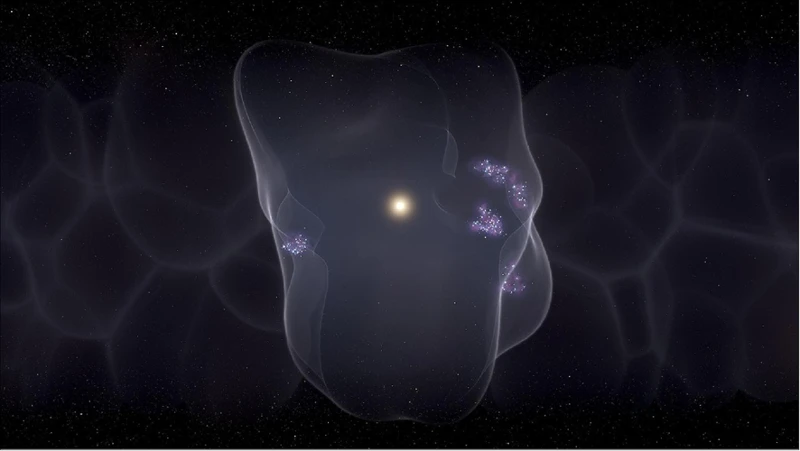
In conclusion, the role of medicine men and women in Native American mythology is of immense significance. They serve as spiritual leaders, healers, and protectors of tradition, carrying the weight of their communities’ well-being on their shoulders. Through their deep connection with the spiritual realm and their extensive knowledge of herbal medicine and healing techniques, they provide guidance and healing to those in need. Despite the challenges and misrepresentations faced over the centuries, these individuals continue to hold a vital place in Native American culture. They are the bearers of ancient wisdom and knowledge, preserving the traditions and values that have defined their people for generations. As we move forward, it is crucial to recognize and respect the continued relevance of medicine men and women, honoring their contributions and supporting the revival of Indigenous medicine. By doing so, we not only embrace the richness of Native American mythology but also cultivate a deeper understanding of the profound role these individuals play in the spiritual and cultural landscape of their communities.
Frequently Asked Questions

1. What is the role of medicine men and women in Native American society?
Medicine men and women hold a central role in Native American society as spiritual leaders, healers, and protectors of tradition and culture.
2. How do medicine men and women connect with the spiritual realm?
Medicine men and women connect with the spiritual realm through ceremonies, rituals, prayers, and their deep knowledge of the natural world.
3. What healing techniques do medicine men and women use?
Medicine men and women use a combination of herbal medicine, energy work, and spiritual practices to heal physical, emotional, and spiritual ailments.
4. Are medicine men and women only found in Native American cultures?
While medicine men and women are most commonly associated with Native American cultures, similar roles exist in indigenous cultures around the world.
5. How do medicine men and women preserve Native American traditions?
Medicine men and women preserve Native American traditions by passing down sacred knowledge, myths, rituals, and teachings to the younger generations.
6. Are medicine men and women considered supernatural beings?
Medicine men and women are not considered supernatural beings themselves, but rather individuals with a deep understanding of the supernatural and the ability to connect with it.
7. Can anyone become a medicine man or woman?
Not anyone can become a medicine man or woman. The role is often bestowed upon individuals who show a natural affinity for spiritual practices and healing, and who undergo rigorous training and initiation processes.
8. How has colonization impacted the role of medicine men and women?
Colonization has had a detrimental impact on the role of medicine men and women, as indigenous practices were suppressed and often demonized by colonial powers.
9. Is the role of medicine men and women still relevant today?
Absolutely, the role of medicine men and women is still relevant today as they continue to provide spiritual guidance, healing, and cultural preservation within Native American communities.
10. How can we support and respect medicine men and women?
We can support and respect medicine men and women by recognizing and honoring their knowledge, traditions, and contributions, and by promoting cultural awareness and understanding.
References
Frequently Asked Questions

What is the role of medicine men and women in Native American mythology?
Medicine men and women are spiritual leaders, healers, and protectors of tradition and culture in Native American mythology.
How do medicine men and women connect with the supernatural?
Medicine men and women connect with the supernatural through practices such as channeling spirits and ancestors, and through divination and prophecy.
What are some common rituals and practices performed by medicine men and women?
Medicine men and women engage in vision quests and shamanic journeys, as well as utilize herbal medicine and other healing techniques.
How did colonialism impact the role of medicine men and women in Native American communities?
Colonialism led to the suppression of indigenous practices, including those of medicine men and women, resulting in a loss of cultural knowledge and traditions.
What are some examples of famous medicine women in Native American mythology?
Legendary medicine women in Native American mythology include figures such as White Buffalo Calf Woman and Changing Woman.
How do medicine men and women contribute to the preservation of wisdom and knowledge?
Medicine men and women play a vital role in preserving the wisdom and knowledge of their communities through passing down oral traditions, rituals, and healing practices.
Are there any misconceptions or misunderstandings surrounding the role of medicine men and women?
Yes, medicine men and women have often been misrepresented in popular culture and their practices have been misunderstood, leading to stereotypes and misconceptions.
What is the significance of vision quests and shamanic journeys in Native American mythology?
Vision quests and shamanic journeys are important practices that allow medicine men and women to gain spiritual insight, receive guidance, and connect with the spiritual realm.
Why is the resurgence of indigenous medicine important?
The resurgence of indigenous medicine is crucial for reclaiming cultural identity, preserving traditional knowledge, and providing alternative holistic healing methods.
How can people better understand and respect the role of medicine men and women in Native American communities?
By learning about and acknowledging the historical and cultural significance of medicine men and women, individuals can develop a deeper understanding and respect for their roles and contributions.

